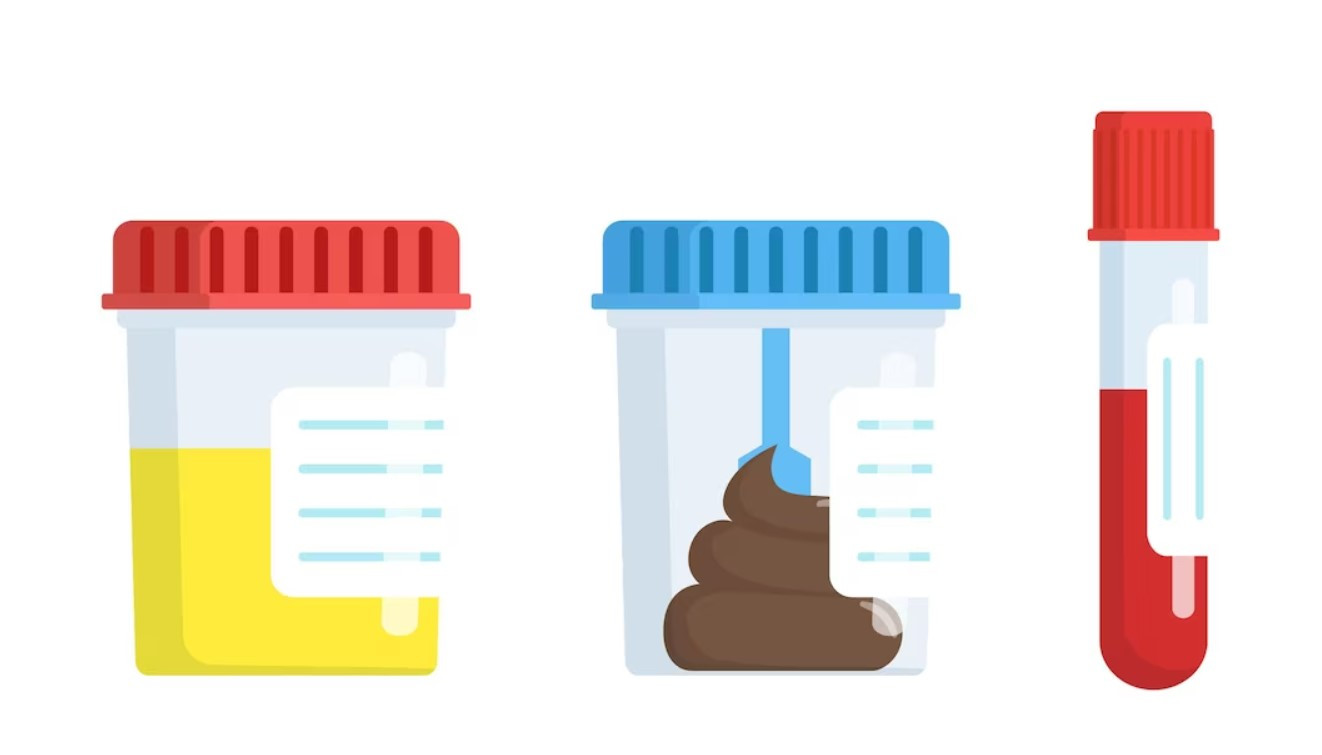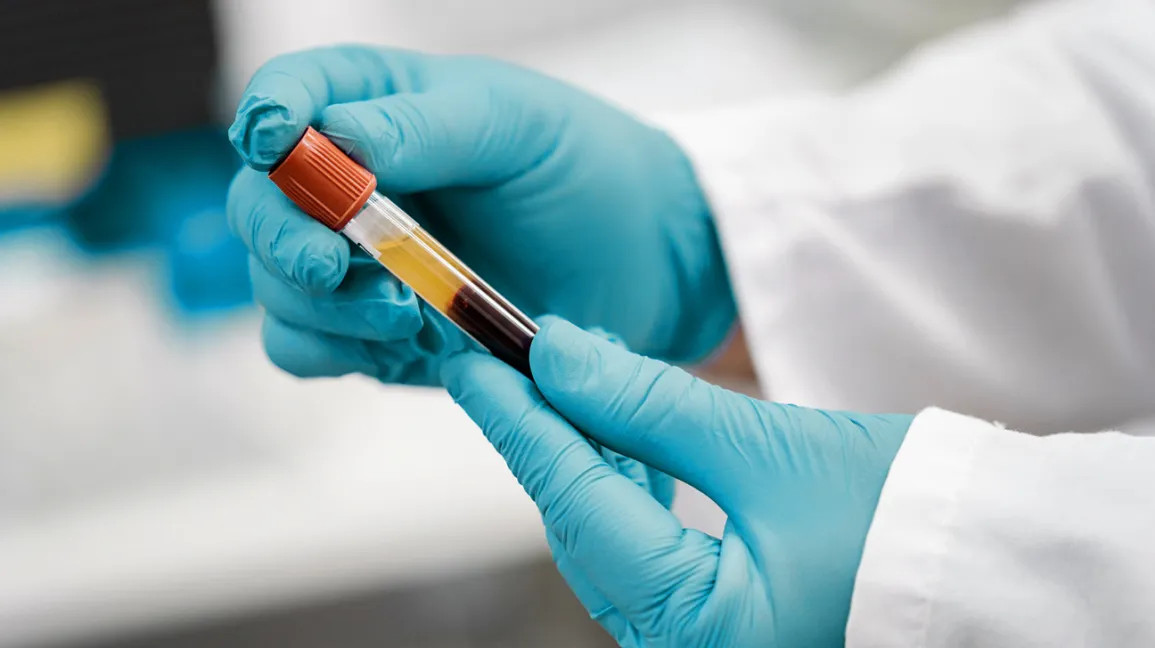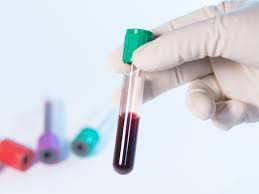Definisi
Pemeriksaan darah samar adalah tes diagnostik untuk mengetahui apakah ada darah mikroskopis atau darah samar pada sampel tinja yang diperiksa. Darah samar ini umumnya tidak bisa dilihat secara kasatmata. Biasanya, darah tersebut berjumlah sangat sedikit dan hanya dapat dideteksi melalui bahan kimia yang digunakan dalam pemeriksaan darah samar.
Ditemukannya darah samar pada tinja menandakan bahwa terjadi perdarahan pada saluran cerna, yang bisa disebabkan oleh berbagai kondisi. Pemeriksaan darah samar hanya bisa mendeteksi ada atau tidaknya darah yang tersembunyi, sehingga mungkin akan diperlukan pemeriksaan penunjang lain untuk mengetahui sumber dan penyebab perdarahan.
Ada beberapa jenis pemeriksaan yang bisa dilakukan untuk mendeteksi darah samar, yaitu:
- Darah samar guaiac (gFOBT)
Mendeteksi darah samar di tinja dengan bahan kimia guaiac. Pemeriksaan ini menggunakan sampel tinja yang dikumpulkan dari 2-3 kali BAB selama beberapa hari.
- Imunokimia tinja (iFOBT/FIT)
Mencari adanya darah samar pada tinja dengan menggunakan antibodi. Pemeriksaan ini dianggap lebih sensitif dari pemeriksaan darah samar guaiac.
- FIT-DNA
Melakukan skrining bila terdapat suatu perubahan pada DNA terkait kanker kolorektal.
Indikasi
Pemeriksaan darah samar bisa disarankan oleh dokter pada individu yang memiliki gejala perdarahan saluran cerna, seperti:
- Tinja berdarah atau hitam
- Nyeri perut yang persisten
- Nyeri di sekitar dubur
- Perdarahan dari dubur
- Kelelahan, dll.
Umumnya, perdarahan saluran cerna bisa membuat tinja disertai darah atau berubah warna menjadi sangat hitam. Namun terkadang darah yang ada di tinja sangat sedikit sehingga tidak terlihat secara kasat mata dan tinja terlihat normal. Pemeriksaan darah samar bisa menemukan darah yang tersembunyi ini.
Pemeriksaan ini juga dilakukan sebagai bagian dari skrining kanker kolorektal, terutama di negara maju. Kanker pada kolon atau usus besar menjadi salah satu kanker yang umum ditemukan pada pria dan wanita di seluruh dunia. Oleh karena itu, deteksi dini memiliki peran yang sangat penting, karena bisa membantu deteksi kanker selama masih berada di stadium dini sehingga pasien bisa cepat menerima pengobatan dan angka harapan hidup menjadi lebih baik.
Tenaga medis profesional sangat menyarankan agar orang-orang menjalani tes skrining kanker kolorektal secara teratur. Umumnya dianjurkan bagi orang-orang yang berusia 45-50 tahun untuk memulai skrining kanker kolorektal, terutama bila Anda memiliki risiko mengalami kanker kolorektal. Skrining rutin ini disarankan hingga setidaknya usia 75 tahun. Anda bisa berkonsultasi dengan dokter mengenai risiko Anda memiliki kanker kolorektal.
Bila Anda tertarik untuk membaca lebih lanjut mengenai kanker kolorektal, Anda bisa membacanya di sini: Kanker Kolon (Kolorektal) - Definisi, Penyebab dan Tata Laksana.
Kontraindikasi
Tidak ada kontraindikasi atau larangan khusus untuk pemeriksaan darah samar yang menggunakan sampel tinja. Saat ini diketahui tidak ada juga komplikasi berbahaya dari pemeriksaan darah samar pada tinja.
Persiapan Sebelum Pemeriksaan
Pemeriksaan imunokimia tinja (FIT) tidak memerlukan persiapan khusus, namun pemeriksaan guaiac memiliki hal-hal yang harus diperhatikan. Selama beberapa hari sebelum melakukan pemeriksaan, Anda bisa disarankan untuk menghindari beberapa makanan dan obat tertentu yang dapat memengaruhi hasil pemeriksaan darah samar, seperti:
- Buah dan sayur tertentu, meliputi brokoli dan lobak
- Daging merah seperti daging sapi, kambing dan babi karena darah dari daging ini bisa muncul pada tinja
- Suplemen vitamin C atau buah yang mengandung vitamin C
- Obat antinyeri nonsteroid seperti aspirin, naproksen dan ibuprofen
Prosedur Pemeriksaan
Umumnya prosedur pemeriksaan ini melibatkan pengambilan sampel tinja yang kemudian diperiksa di laboratorium. Saat buang air besar, perhatikanlah agar tinja tidak bercampur dengan urine dan air dari toilet. Sampel lalu ditaruh di wadah khusus yang bersih dan tertutup rapat. Kemudian, wadah diberikan ke laboratorium untuk diperiksa bila ditemukan darah samar.
Jangan mengambil sampel tinja ketika Anda sedang menstruasi, mengalami hemoroid aktif, atau infeksi saluran kemih. Sampel tidak boleh dikumpulkan bila tampak jelas ada darah pada tinja.
Nilai Normal dan Abnormal
Normalnya, hasil pemeriksaan darah samar adalah negatif, atau tidak ditemukan adanya darah mikroskopis pada sampel tinja yang diperiksa. Sementara itu, bila pada sampel tinja ditemukan darah mikroskopis, maka hasil pemeriksaan dianggap positif. Hasil positif menandakan adanya suatu perdarahan yang terjadi pada saluran cerna, dan hal ini bisa mengarah pada beragam diagnosis.
Hasil dan Saran (Pemeriksaan Lanjutan)
Ada berbagai kondisi medis yang bisa menyebabkan munculnya darah mikroskopis pada tinja, seperti:
- Hemoroid
- Ulkus peptikum
- Kanker kolorektal
- Anemia defisiensi besi dengan kecurigaan terjadinya perdarahan saluran cerna, dll.
Bila Anda mendapatkan hasil pemeriksaan positif, Anda mungkin disarankan untuk melakukan pemeriksaan penunjang lebih lanjut seperti kolonoskopi. Kolonoskopi adalah pemeriksaan dengan tabung tipis berkamera yang dimasukkan ke dalam dubur untuk mendeteksi bila ada kelainan pada usus besar, mencari tahu penyebab pasti dari perdarahan dan lokasi terjadinya perdarahan di saluran cerna.
Konsultasikan ke Dokter yang Tepat
Bila hasil pemeriksaan darah samar Anda menunjukkan hasil positif, Anda dapat berkonsultasi dengan dokter umum atau dokter spesialis penyakit dalam mengenai kondisi Anda.
Mau tahu informasi seputar hasil pemeriksaan laboratorium, radiologi, dan lainnya? Cek di sini, ya!
- dr Hanifa Rahma
Fecal Occult Blood Test. (2022). Retrieved 09 January 2023, from https://www.mayoclinic.org/tests-procedures/fecal-occult-blood-test/about/pac-20394112
Fecal Occult Blood Test (FOBT). (2022). Retrieved 09 January 2023, from https://medlineplus.gov/lab-tests/fecal-occult-blood-test-fobt/
Fecal Occult Bloos Test. (2022). Retrieved 09 January 2023, from https://www.ncbi.nlm.nih.gov/books/NBK537138/
Decal Occult Blood Test (FOBT). (2022). Retrieved 09 January 2023, from https://my.clevelandclinic.org/health/diagnostics/24227-fecal-occult-blood-test-fobt
Faecal Immunochemical Test. (2022). Retrieved 09 January 2023, from https://patient.info/cancer/colon-rectal-bowel-cancer-colorectal/faecal-occult-blood-test
Stool Testing for Blood (Fecal Occult Blood Test). Retrieved 09 January 2023, from https://www.webmd.com/digestive-disorders/digestive-diseases-stool-testing-blood-fecal-occult-blood-test












